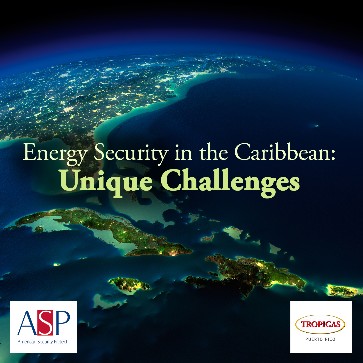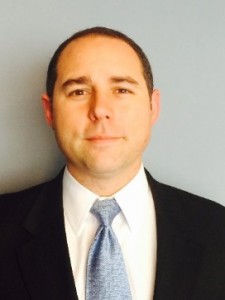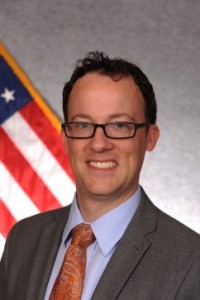
Energy Security in the Caribbean: Panel 2: Technology Advances and Policy Challenges
Panel Two: Technology Advances and Policy Challenges
Date: February 4, 2015
Time: 2:00pm – 3:00pm
Location: 1100 New York Avenue, NW 7th Floor, West Tower
Join ASP and our panelists in a discussion about energy security issues in the Caribbean.
Thanks to new technology and business practices, Caribbean islands no longer have to be solely dependent upon imported fuel oil for energy. This session will discuss how the twin energy revolutions of renewable electricity and American shale can provide a more affordable, secure source of fuel. It will discuss policy fixes that could quickly reduce costs and increase reliability. It will highlight several promising technologies that could make a big difference.
Speakers
Panelist: Natacha Marzolf
 Natacha C. Marzolf is a Principal Energy Specialist in the Energy Division of the Infrastructure and Environment Department and is based in Washington DC. She joined the Bank in 1996, selected by the Young Professional Program and has over 20 years of experience originating, structuring and disbursing sovereign and non-sovereign transactions, in particular in the energy sector in Latin American and the Caribbean. She has worked both in the private sector and public sector of the Bank in various infrastructure projects, including several awards and obtained the 2005 Deal of the Year “Campos Novos” in Brazil. Her most recent publications in the energy field include a policy paper on “Fiscal and Non-Fiscal Incentives to promote Renewable Energy in Chile” (2012) and her Department’s first monograph on “Power and Possibility: the Energy Sector in Jamaica” (2011). Her third publication “Harnessing Geothermal Energy in Colombia” (book) was published in December 2013 and captures the methodology proposed to impulse the geothermal potential in Colombia. She is currently finishing her last paper on Sustainable Energy in Trinidad and Tobago. Ms. Marzolf is a graduate of Harvard Law School and holds a post-graduate degree in Development and Economics Law from the University of Paris II and a Master in International and European Law from Paris II – Assas.
Natacha C. Marzolf is a Principal Energy Specialist in the Energy Division of the Infrastructure and Environment Department and is based in Washington DC. She joined the Bank in 1996, selected by the Young Professional Program and has over 20 years of experience originating, structuring and disbursing sovereign and non-sovereign transactions, in particular in the energy sector in Latin American and the Caribbean. She has worked both in the private sector and public sector of the Bank in various infrastructure projects, including several awards and obtained the 2005 Deal of the Year “Campos Novos” in Brazil. Her most recent publications in the energy field include a policy paper on “Fiscal and Non-Fiscal Incentives to promote Renewable Energy in Chile” (2012) and her Department’s first monograph on “Power and Possibility: the Energy Sector in Jamaica” (2011). Her third publication “Harnessing Geothermal Energy in Colombia” (book) was published in December 2013 and captures the methodology proposed to impulse the geothermal potential in Colombia. She is currently finishing her last paper on Sustainable Energy in Trinidad and Tobago. Ms. Marzolf is a graduate of Harvard Law School and holds a post-graduate degree in Development and Economics Law from the University of Paris II and a Master in International and European Law from Paris II – Assas.
Panelist: Brian O’Hanlon
Brian O’Hanlon is the Director for Business Development for Renewable Energy and Sustainable Development at the Overseas Private Investment Corporation. Prior to his current position, Brian served as a Director in OPIC’s political risk insurance division. A specialist in renewable energy, Brian join OPIC after serving as the senior analyst for U.S. renewable energy companies and international markets at the U.S. Commerce Department. In 2010, Brian led the development of the U.S. Government Renewable Energy and Energy Efficiency Export Initiative and the establishment of a private sector advisory committee to advise the Secretary of Commerce on issues affecting renewable energy companies. He has a Masters of International Affairs from American University and a Bachelor of Arts in History and Political Science from Pacific Lutheran University.
Panelist: Michael Zehr
 Michael Zehr joined HBW in 2011 as Vice President of Federal Affairs. Michael has over a decade of experience as a senior energy policy advisor in the U.S. Senate where he served on the staffs of four U.S. Senators, including U.S. Senate Majority Leader Mitch McConnell. A procedural and legislative strategist, Michael has specialized in developing legislative proposals and advocacy plans dealing with complicated and politically sensitive initiatives.
Michael Zehr joined HBW in 2011 as Vice President of Federal Affairs. Michael has over a decade of experience as a senior energy policy advisor in the U.S. Senate where he served on the staffs of four U.S. Senators, including U.S. Senate Majority Leader Mitch McConnell. A procedural and legislative strategist, Michael has specialized in developing legislative proposals and advocacy plans dealing with complicated and politically sensitive initiatives.
While on the Hill, Michael served as Legislative Director for U.S. Senator George LeMieux (FL), Legislative Director for U.S. Senator Mel Martinez (FL), Staff Director for the Senate Special Committee on Aging, Legislative Assistant for U.S. Senator Mitch McConnell (KY), and Legislative Assistant for U.S. Senator Tim Hutchinson (AR). During his service in the Senate, Michael played a critical role in helping shape and negotiate key pieces of agriculture and energy legislation including the Farm Security and Rural Investment Act of 2002, the American Jobs Creation Act of 2004, the Energy Policy Act of 2005, the Gulf of Mexico Energy Security Act of 2006, the Energy Security and Independence Act of 2007, and the Small Business Jobs and Credit Act of 2010. Michael also advised Members on opportunities to utilize Committee hearings, the appropriations process, and federal nominations to advance policy objectives and priorities within executive branch departments and agencies.
As Vice President of Federal Affairs, Michael monitors all federal activities affecting HBW’s clients, and he directs the firm’s federal lobbying activities in Washington, DC. He also organizes and hosts the firm’s Energy Roundtable Series with Members of Congress, which provides key insights into the energy and environmental polices being considered by government officials. Michael maintains a broad network of contacts throughout the federal government and is activity engaged in efforts to shape energy, environment, and transportation policy development through educational outreach and direct advocacy.
Michael holds a Master of Arts degree in National Security and Strategic Studies from the U.S. Naval War College, a Master of Science degree in Biotechnology from Johns Hopkins University, and a Bachelor of Science degree in Chemistry from the University of Virginia. He was also awarded a Howard Hughes Research Fellowship at Dartmouth College where he conducted biophysics research published in the scientific journal Structure.
Conference Details: Energy Security in the Caribbean: Unique Challenges







[…] second panel discussed policy challenges and viable energy alternatives to fossil fuels in the region in an […]